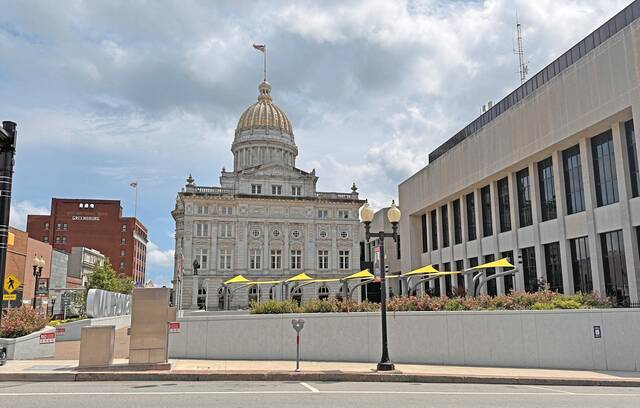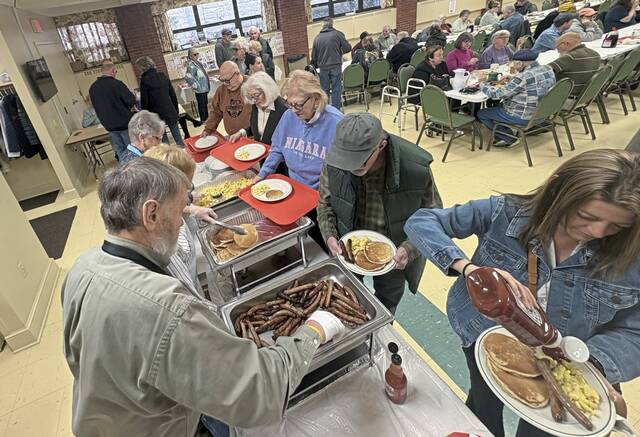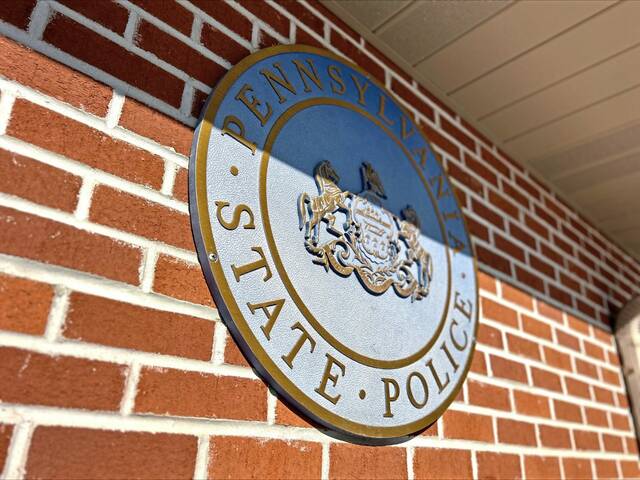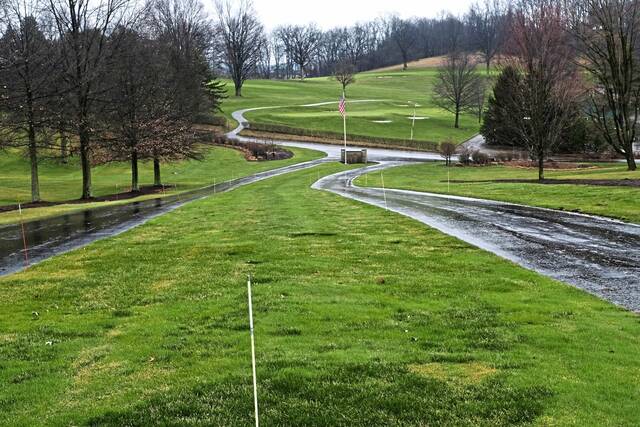Westmoreland County may tap federal coronavirus pandemic grant funds to cover impending budgetary shortfalls.
The county still holds less than a third of the $105.4 million in federal grants that it received.
Finance Director Meghan McCandless said even though all of the funds received through the American Rescue Plan program have been allocated, about $31 million remains in the bank.
That balance could be shifted to address ongoing financial concerns related to the state budget impasse in Harrisburg.
The state budget, more than a month overdue, has created a potential spending gap for county officials to navigate in the coming weeks.
Westmoreland County has already missed out on more than $16 million because of the ongoing state budget debate, McCandless said, and, come September, there won’t be enough money to pay all the bills.
“No payments (to vendors) have been stopped, yet,” McCandless said.
That’s where the county’s covid-19 funds could be redirected.
About $28 million in unspent covid money is eligible for reallocation to cover general county expenses. Another $7.8 million in interest earned on the American Rescue Plan funds are in reserve and available to cover deficits, she said.
Meanwhile, federal spending cuts are not expected to impact county finances, at least over the next few months, according to McCandless.
Still, county officials are preparing for potential financial hardships.
“This is the consequences of their (state lawmakers’) inaction,” said county Commissioner Ted Kopas. “If the state and federal government don’t do their jobs, our job gets that much harder.”
The county’s remaining covid funds could help, officials said.
According to financial reports made public this month, the county through June has spent nearly three quarters of its American Rescue Plan funding, more than $74 million.
The remaining money must be spent through the end of next year.
The county received its federal covid funds in 2022 and there are requirements about how the money can be used.
Covid funds paid for 111 projects since 2022, according to the report.
Big ticket items include:
• $1 million toward the development of the New Kensington Advanced Manufacturing Park
• $4.4 million to the Westmoreland County Food Bank
• $10.4 million for blight removal program
• $10.4 million in grants awarded for municipal water and sewer system enhancements
• $12 million slated for installation of broadband service throughout Westmoreland County.
McCandless said the largest outlay of covid funds — $35 million — was used to balance the county budget. Commissioners allocated $24.4 million in 2024 and another $9.8 million this year to cover budget expenses that in past years were paid for with county tax revenue.
Additional funds were used to pay for an overhaul of the county’s technology, computer and cyber security equipment; capital upgrades at the courthouse and jail; workforce development, emergency radio and other public safety enhancements and raises paid to staff during the early days of the pandemic.
Even with the increased revenue from covid money, commissioners imposed a 32.5% property tax hike in 2024.
Kopas said the county’s covid funds likely delayed additional tax hikes.
Work on the 2026 budget has begun. The county’s $452 million budget for this year did not raise taxes.
“The (covid) money by and large was allocated before I got into office and now the gift is gone,” Kopas said. “The challenge of budgeting will be more challenging.”
Commissioners Sean Kertes and Doug Chew did not respond to calls seeking comment.
Kopas said fiscal restraint is needed, and that recent spending through salary hikes approved this month by Kertes and Chew must be reigned in.
“There is no single grand solution to our budget problems,” Kopas said. “I wish my colleagues were more agreeable to my concerns. Every dollar spent has long-term consequences.”








